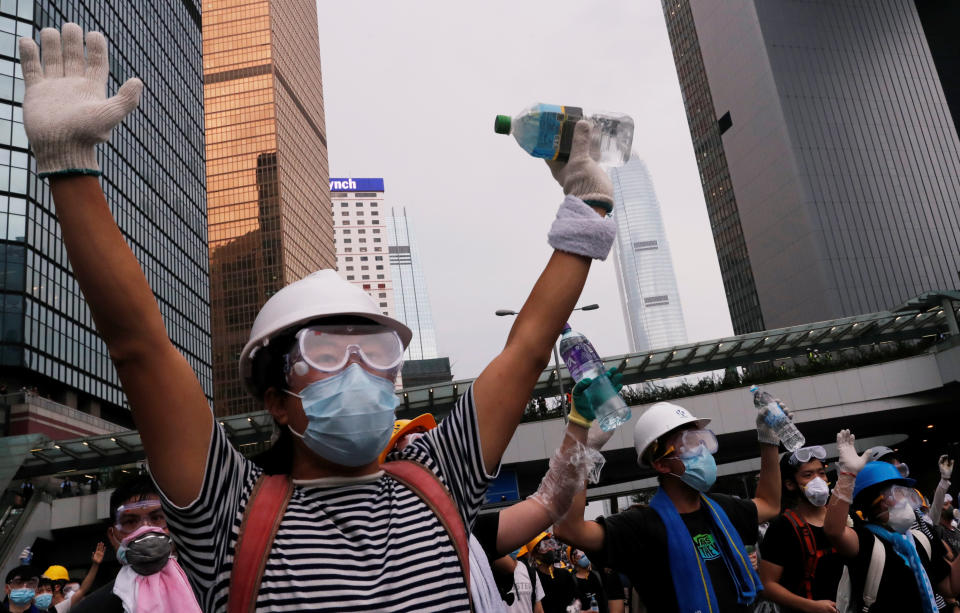Hong Kong protests may hit luxury brands like Burberry and Hermes
Ongoing protests in Hong Kong could hit the bottom lines and stock prices of luxury brands, UBS is warning clients.
“We believe that investors should carefully watch the risks associated with the potential continuation of the riots,” analysts Julie Zhuang, Susy Tibaldi, and Helen Brand wrote in a note to clients on Thursday.
Thousands of people have taken to the streets in Hong Kong over the last week to protest against a proposed new law that would give mainland China extradition powers the region.
“Hong Kong has been historically an important market for luxury goods; we estimate it represents approximately 5% of sector sales with profitability above average,” UBS analysts wrote.
“As such we note that the ongoing disruption in the market could result in lost revenues due to temporary store closures (we understand that yesterday [Thursday] some of the luxury stores had to be closed) as well as a reduction in tourism (estimated greater than 80% of HK market).”

UBS said that Richemont (CFR.SW), the Swiss group that owns brands such as Cartier and Chloe, is the most exposed to disruption in Hong Kong, with an estimated 11% of sales coming from the market. Swatch (UHR.SW) gets about 10% of revenues from Hong Kong, while Burberry (BRBY.L) makes about 9% of total sales there, UBS said.
Other brands with high levels of exposure to the Hong Kong market include Hermes (RMS.PA), Moncler (MONC.MI), Prada (PRP.F), Tod's (TOD.MI), Ferragamo (SFER.MI), and Ferrari (RACE). Luxury groups Kering (KER.PA), which owns brands like Gucci, Yves Saint Laurent, Balenciaga, Alexander McQueen, and LVMH (MC.PA), which owns Louis Vuitton and Moet champagne among others, are also at risk.
UBS’ analysts say the exact impact of the protests on sales at each company is “difficult to estimate” but said a greater threat might be the impact of souring investor sentiment. Last time there were large scale protests in Hong Kong in 2014 the luxury sector lost about 23 percentage points on a price to earnings basis when compared to the broader MSCI Europe index.
“Although we note that it may not be easy to isolate the exact effect of the protests on luxury stocks' valuation, this analysis gives an indication of the possible magnitude of sector de-rating,” the analysts said.
————
Oscar Williams-Grut covers banking, fintech, and finance for Yahoo Finance UK. Follow him on Twitter at @OscarWGrut.
Read more:

